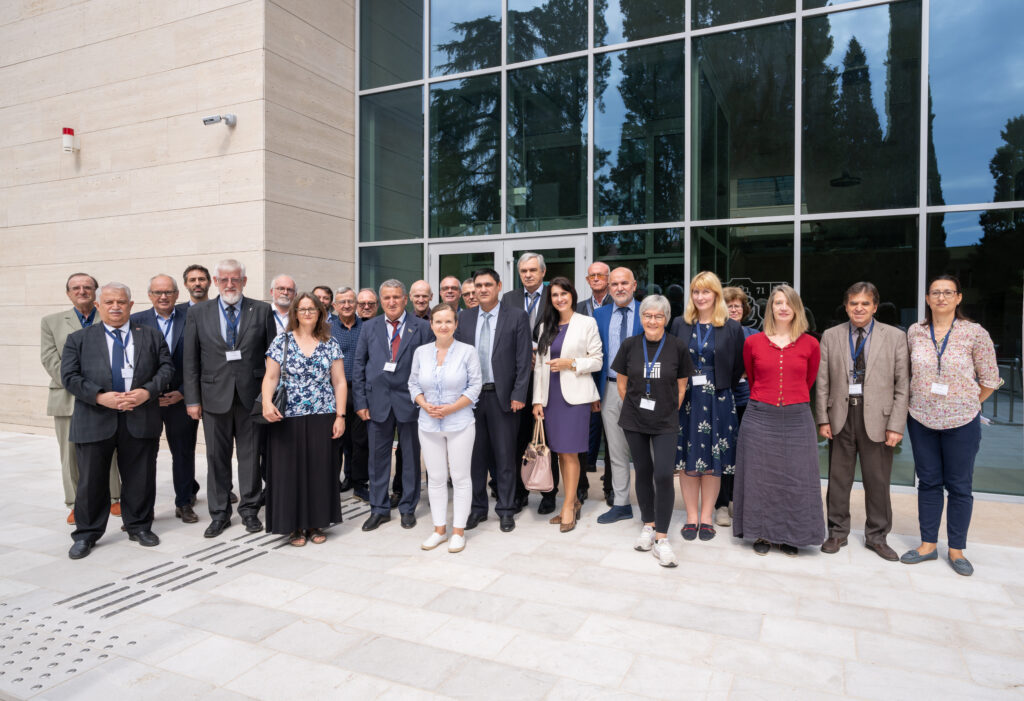Estonian Academy of Sciences Yearbook 2023, 88-90:
„At the end of 2021, the Estonian Academy of Sciences was elected chair of the European members of the
global science organisation International Science Council (ISC). Estonia will direct the work of the European ISC Members until the end of 2024.
2023 was a busy year for the ISC on several fronts.
Reorganisations continued to include a broader circle of scientists in the activities of the Council, which paid particular attention to empowering scientists from developing countries and crisis regions. At the intersection of science and politics, the ISC aims to act as a catalyst for change, concentrating expert scientific knowledge, formulating policy recommendations and speaking in matters that are important for both science and society.
In May 2023, a science symposium was held as a midterm meeting of the ISC in Paris, France, and this focused on possible synergies between scientists of different regions, their organisations and various scientific disciplines. As the Chair of the European ISC Members, Tarmo Soomere presented the interests and common challenges of European scientists.
During Estonia’s presidency, the main activities of the European ISC Members have been focused around three umbrella topics. First, the representation of the interests of European research institutions and scientists in the global ISC organisation. In recent years, the activities of the ISC have significantly expanded and the management of the organisation has changed. Although the European ISC Members comprise nearly a quarter of the member organisations of the global ISC, they are not proportionally represented in the new management of the Council.
Therefore, one of the tasks of the European ISC Members and its Secretariat in Estonia is to draw attention to the viewpoints and needs of European scientists in the global ISC organisation.
The second important umbrella topic is the promotion of scientific advice and knowledge-based policy-making in Europe, primarily by way of developing and shaping the structures necessary to achieve this. The network of science organisations concentrates the best knowledge and helps find the best new practices for solving scientific advice challenges by sharing experience, holding public discussions and engaging in research cooperation. The need for more permanent scientific advice structures with rapid
response capabilities and interdisciplinary competences is also growing at EU level.
The third area of activity in the work of the European ISC Members is the development of science diplomacy and international research cooperation. This includes the improvement of overall knowledge as well as practical activities where the aim of research cooperation is to support relations between countries or regions or, conversely, to facilitate the growth of science and innovation via diplomacy.
The event of the year for the European ISC Members is the Annual Meeting and a science day aimed at the broader public, which are both held in autumn. In 2023, both events were held in Podgorica, Montenegro, in the middle of September (14–15 September) in cooperation with the Montenegrin Academy of Sciences and Arts. The participants were given an overview of developments in the region’s research and science policy, and the major challenges to science in Europe were addressed. Discussions also focused on matters related to the position and influence of science in society, relations between science and politics, developments in science diplomacy and the changing role of European science in the globalising world.
In 2024, the European ISC Members are facing new organisational (elections of a new steering group,
possible change of location of the Secretariat) and substantive tasks, such as the more efficient inclusion of European scientists in solving global scientific issues.“
